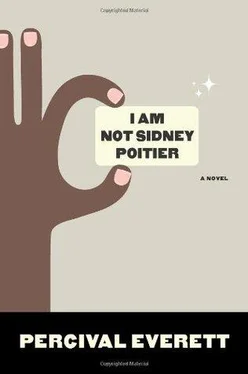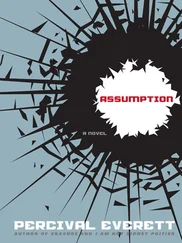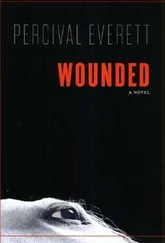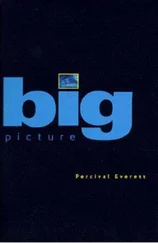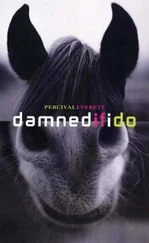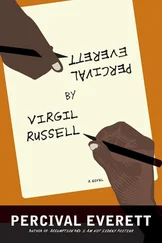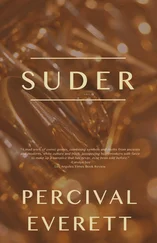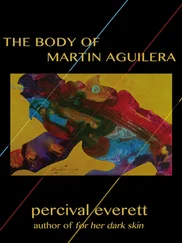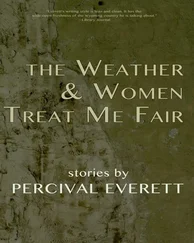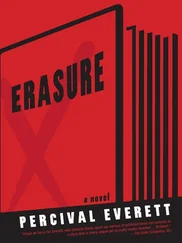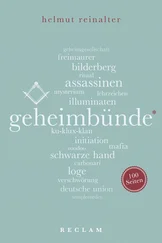“That would be awkward,” I said.
“Where is your family?”
“I don’t have any,” I said.
“None?”
“Not that I know of.”
“That’s too bad.”
I nodded.
“Well, I’d like you to think of us as your family, of this as your home. What do you say?”
“Thank you.”
Maggie opened the door, poked her head in, and then stepped fully inside. “What’s going on?”
“Your young man and I are just sitting here having a chat, a little man talk,” Ward said. “We’ll be done soon.”
Maggie backed out of the study.
“Maggie’s remarkable, isn’t she?” he said.
“I guess so.”
He looked around his study. “This room makes you nervous. It has that effect on many people. You wonder why I have these heads. Well, I think they give the place a kind of warmth.”
“They’re dead,” I said.
“Yes, but they were once alive, weren’t they? I find them comforting. I find this room comforting. It’s filled with memories.” He pointed at the bearskin rug. “It seems like just yesterday that Maggie was a baby lying bare-bottomed on that fur. Imagine that.”
“I imagine her as an adult,” I said. I knew it was an inappropriate utterance and in fact it wasn’t true; I wasn’t imagining Maggie at all.
Ward’s reaction was immediate, but he contained himself. He cleared his throat and said, “Really?”
All of a sudden, I understood my position of power, and I was heeding Everett’s suggestion that I have “fun,” as he put it. “Yes,” I said. “I especially like the idea of that rich dark brown fur set against her beige, almost yellow skin.”
I had, in a manner of speaking, undone Ward Larkin. Though it was not visible to the naked and untrained eye, the man was trembling. Either from anger or fear or both, perhaps on a molecular level, but the trembling was real and physical, not psychic, not metaphoric. He had followed me into his own den, his own territory, and found me more than a mere lifeless head on his paneled wall, more than frightened prey. Even more was that he had found me armed, armed with the weapon that any human fears most, something he wanted. He was, I realized, so taken with my wealth that I could have pulled out my tallywhacker and handled it while we talked. But I didn’t. I didn’t for a host of reasons, the main one being that I was afraid.
“Maggie tells me you like boating?” I said.
He let out a breath. It could have been relief, it could have been merely breathing. “I do,” he said.
“I like sailing,” I told him. “I love the salt air and the spray. What kind of boat do you have?”
“I don’t own a boat.”
“I see.” I looked at his desk. I was still seated behind it in his swiveling chair. “I see you like golf.” I pointed to the brass bag of club pens.
“I do.”
“I’ve never played,” I said. “Seems like a boring game. What is it you like about it?”
“It’s a very difficult game,” he said.
“If you say so.”
Maggie poked her head back into the room. “Are you two done yet?”
“Yes,” Ward said, “we are.”

In the car, on our way to pick up much-needed cranberries for Violet, Maggie regarded me suspiciously. “So what was going on in there?”
“We were just talking. You know, I think your father likes me.”
“What?”
“I think we hit it off.”
She watched the road.
“Does that surprise you?” I asked.
“No, not at all.”
“Maggie, tell me, why did you invite me here?” I asked. I really had no interest in trying to punish Maggie and I really didn’t consider it my place to even entertain the notion.
“I like you,” she said.
I saw no reason to challenge that. In fact I hardly doubted it. Still, I didn’t imagine that was the reason for my presence. I was making some kind of peace with my place in the rebellious daughter/overbearing parents tragicomedy in which I’d found myself.
She said, “I didn’t want you to be lonely on Thanksgiving.”
It was a lie, a patronizing one, that didn’t sit particularly well with me, and I found myself disliking Maggie and perhaps feeling a little sorry for myself. I looked over at her and found that, oddly, as my dislike took shape and grew, she seemed prettier. That minor observation meant little to me except insofar as it was an observation.
“So, why didn’t things work out with you and Robert?” I asked.
Maggie was caught off guard by the question and also by the relaxed tone with which it had been posed.
“They just didn’t.”
“Why?”
“Like I said, we’re like brother and sister.”
“I don’t know what that means,” I said.
“I love him but I’m not in love with him.”
I studied her face as she pulled into the grocery-market parking lot. “He seems like a nice enough guy,” I said.
“He is,” she said.
“Nice enough?”
“Very nice.”
Not caring was a comfortable place to sit. Comfortable enough for me to let the matter go. Comfortable enough to resolve to not actively pursue the having of fun, but to remain aloof and simply watch.

My mother had been, if not disdainful then suspicious of holidays; she thought that they were all either some form of corporate extortion, religious indoctrination, or governmental propaganda. Thanksgiving fell into the third category — one big glorious lie to put a good face on continental theft. Then she would point out that the turkey is not a noble bird. She didn’t dislike the holiday as much as the Fourth of July, but she disliked it plenty. The upshot for me was that I never experienced a so-called traditional Thanksgiving family dinner with the bird, cranberry stuff, and all the trappings. Ted had steadfastly maintained any boundary that might have confused our relationship with some suggestion that I was an adopted member of the family. And as for my staff, the women who cared for me through childhood, well, they were employees and they had families and lives of their own. So, in a rather peculiar and perhaps anthropological way I was looking forward to Thanksgiving dinner with the Larkins.

The dining-room table was fantastically long or at least it seemed so to me. Heavy. Wooden. And it was set for ten. There were two arrangements of plastic flowers, roses and something imaginary, that seemed to have little if anything to do with the occasion, and in the center of each arrangement was a silver reflective globe, what people put in their gardens and called gazing balls. From any spot a glance at a ball would yield a fish-eye view of most of the room. The tablecloth was red and the napkins were thick gold paper with a border of turkeys. I was standing alone next to the china cabinet watching Violet in the kitchen. I could hear Maggie and Agnes going at each other upstairs someplace, but I had no idea and every idea what it was about. Ward and Ruby were visiting in the living room with the first guests to arrive. Violet came to the table with a stack of plates.
“Can I do something to help?” I asked.
“No.”
“Why do you dislike me, Violet?”
“I don’t dislike you,” she said. “I don’t care enough about you to like or dislike you.”
“Thank you for clearing that up. Let me ask you something. Most of the people in this house seem a bit crazy. You might be one of them. So, here it is. Do you have a problem with my skin color?”
“What are you asking me?”
Читать дальше
